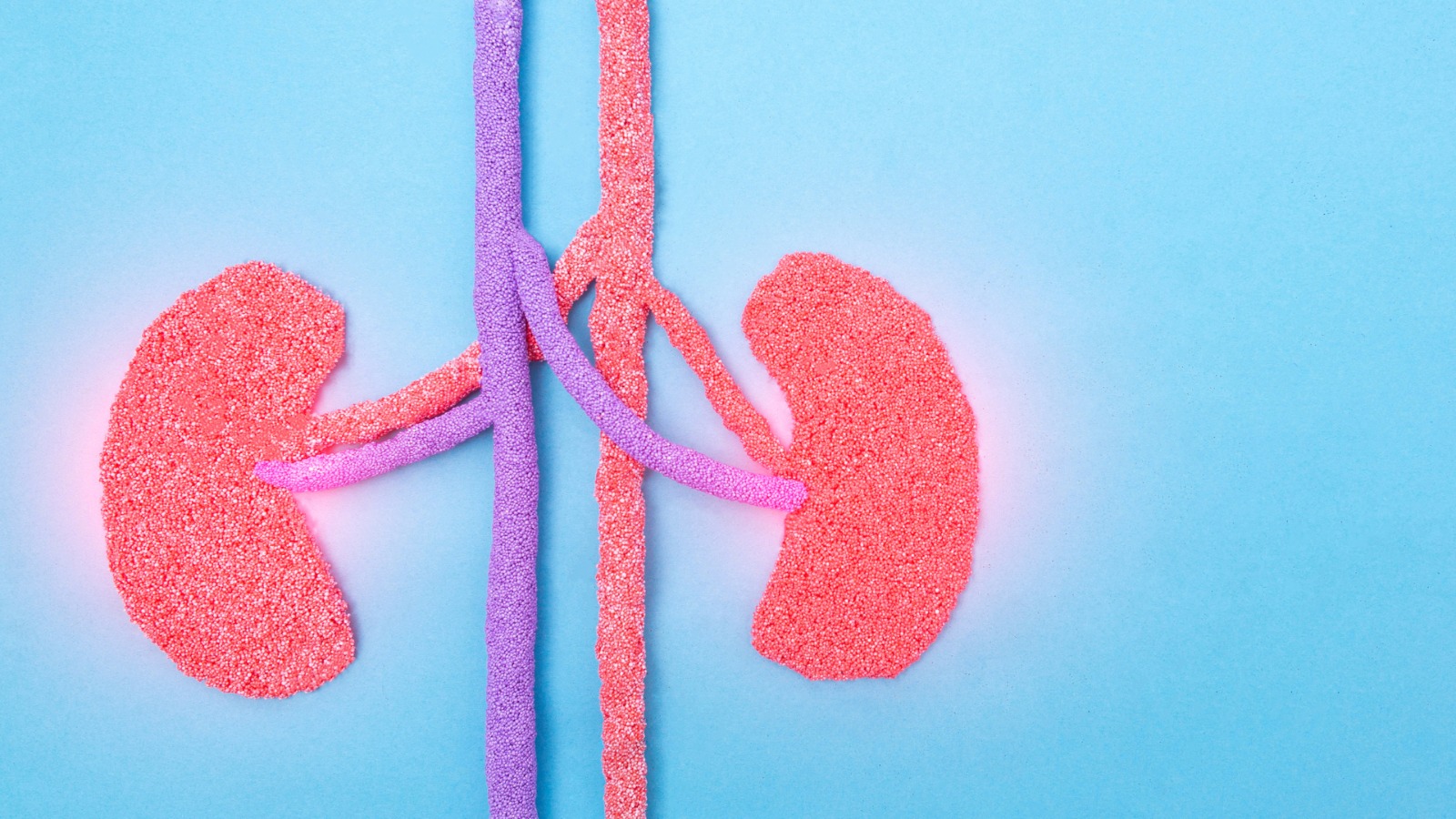At My Pet Nutritionist, Cushing’s Disease is a big topic. We help a lot of dogs with Cushing’s Disease, and so we have created this essential guide to supporting the body with Cushing’s Disease.
What is Cushing’s Disease?
Cushing’s Disease, formally known as hyperadrenocorticism, was first diagnosed in 1912, by an American neurosurgeon named Harvey Cushing; hence it was informally named Cushing’s Disease.
Cushing’s Disease is caused by too much of the hormone, cortisol being produced by the adrenal glands in the kidneys. Cortisol is a steroid hormone, and is responsible for regulation of various important bodily functions, such as immune response, and metabolism, as well as stress responses. Cortisol floods the body during stressful situations, in response to the stressor, which reduces risk of negative impacts during a flight or flight situation.
Findings Here
How Does Cushing’s Disease Happen?
It is thought that predisposition for Cushing’s could be inherited genetically, and there are various breeds that are predisposed to Cushing’s, including:
- Poodles (and crosses)
- Yorkshire Terriers
- German Shepherds
- Boxers
- Maltese
- Labradors
- Cocker Spaniels
- Dachshunds
- Boston Terriers
- Staffordshire Bull Terrier
There are three different medically underlying causes for Cushing’s Disease. Let’s take a look at these!
Prolonged Use of Steroids
Both topical and oral steroids used excessively, can lead to Cushing’s Disease. This type of Cushing’s is called Iatrogenic Cushing’s. Steroids contain a synthetic variation of cortisol, which on top of the body’s natural production of cortisol, leads to an overwhelming amount of cortisol, causing Cushing’s.
Findings Here
Findings Here
Adrenal Gland Tumour
There are two types of tumour which could form on the adrenal gland, causing excessive cortisol production. Adenomas are benign tumours, which could be surgically removed, are the better of the prognoses; removal is usually successful. Carcinomas are malignant tumours, which can have surgical interventions, but the prognosis is much more negative, and aggressive treatment may be required.
Findings Here
Findings Here
Pituitary Gland Tumour
A huge proportion of Cushing’s cases are caused by tumours on the Pituitary Gland. The Pituitary Gland is located at the base of the brain, and secretes a hormone called ACTH, which stimulated the adrenal glands to produce Cortisol. When there is a tumour present on the Pituitary, more ACTH is secreted, which results in overproduction of Cortisol.
These tumours may be benign or malignant, and may be microscopic, or large. The larger the tumour, the more neurological signs there will be.
Findings Here
Findings Here
Symptoms of Cushing’s Disease
There are a variety of symptoms of Cushing’s Disease, which include:
- Lethargy
- Increased appetite
- Weight gain
- Excessive thirst
- Excessive urination
- Poor skin/baldness
- Bloated appearance
- Calcinosis Cutis
- Difficulty healing from minor wounds
- Hyperpigmentation (dark spots)
- Recurring bladder infections
How is Cushing’s Disease Diagnosed?
There are a number of tests used when veterinarians test for Cushing’s Disease.
The most common test is the ACTH Stimulation Test, during which a blood draw is taken from the dog, before ACTH is injected into the dog, and a second blood draw is taken some hours later. The two blood samples are compared for levels of cortisol. This is a very effective method, and cost effective.
A Low Dose Dexamethasone Suppression Test can pinpoint exactly what is causing the Cushing’s Disease, if Cushing’s is present. In this test, a small amount of Dexamethasone (synthetic cortisol) is injected into the dog. In a healthy dog, ACTH production slows down to regulate the amount of cortisol produced by the adrenal gland; in a dog with Cushing’s, ACTH production would continue, causing raised levels of cortisol in a follow-up blood sample.
To check the adrenal gland for swelling or visible tumours, your veterinarian may also run an ultrasound as the adrenal gland will be visible on this.
Supporting the Body
Diet
Feeding a fresh food diet is very important, as with any condition! That could be raw, or cooked, balanced to one of
our recipes.
A low fat diet may be beneficial because fat and cholesterol levels in the body are increased when in the presence of excessive cortisol.
When raw feeding, the organ being fed as part of your 10% offal, contributes to the support of that organ in the body; so feeding kidney may help support the dog’s kidneys.
Supplements
Omega 3
Omega 3 has an anti-inflammatory effect throughout the body, so is a very important addition to any dog’s diet, especially one suffering from disease, which could be worsened through inflammation.
Not only are they anti-inflammatory, but Omega 3 also play a role in the brain’s production of neurotransmitters, which may be beneficial for Cushing’s sufferers. The effect omega 3 has on the brain is also shown to aid the reduction of mental stress.
Findings Here
Probiotics
Cushing’s sufferers can suffer from poor gut health. Gut Dysbiosis is a concern among those diagnosed with Cushing’s, so giving probiotics is a great idea. These may ne teamed up with a mucilage herb such as slippery elm, or marshmallow root. Find our supplement
Gut Guardian HERE!
Findings Here
Milk Thistle
Particularly useful for patients with Cushing’s caused by a tumour, the active ingredient in Milk Thistle, Silibinin, has been proven to decrease tumour growth, and lower levels of cortisol.
This supplement is also great for detoxing the liver; though that’s a topic for another day! You can
read more on the liver here!
Findings Here
Melatonin and Lignans
Melatonin and lignans are often used in combination with one another to help Cushing’s Disease patients.
Melatonin is great for regulation of hormones. Regulation of cortisol is incredibly important in this situation, so melatonin may be a great option. Circadian rhythms are also maintained by melatonin.
Lignans can be found in flax seed hulls, and mimic phytoestrogen. Phytoestrogen plays a large role in reduction of hormone-dependent tumours, as well as managing skin health. Adding lignans into the diet may aid Cushing’s sufferers, especially those suffering from a pituitary or adrenal tumour.
Findings Here
Findings Here
Findings Here
Complementary Therapies
Acupuncture
Acupuncture is great to reduce inflammation in the body, and also helps to regulate the endocrine system. Studies suggest electroacupuncture is a great option for those suffering with Iatrogenic Cushing’s, too.
As Cushing’s Disease is an endocrine disease, Acupuncture is definitely worth chatting with your veterinarian about; they may refer you to a canine physiotherapist.
Findings Here
Findings Here
If you suspect your dog has Cushing’s Disease following this article, consult with your veterinarian. If your dog has been diagnosed with Cushing’s Disease, and require help with their diet, and lifestyle, please don’t hesitate to book in with one of our team.
Team MPN x






